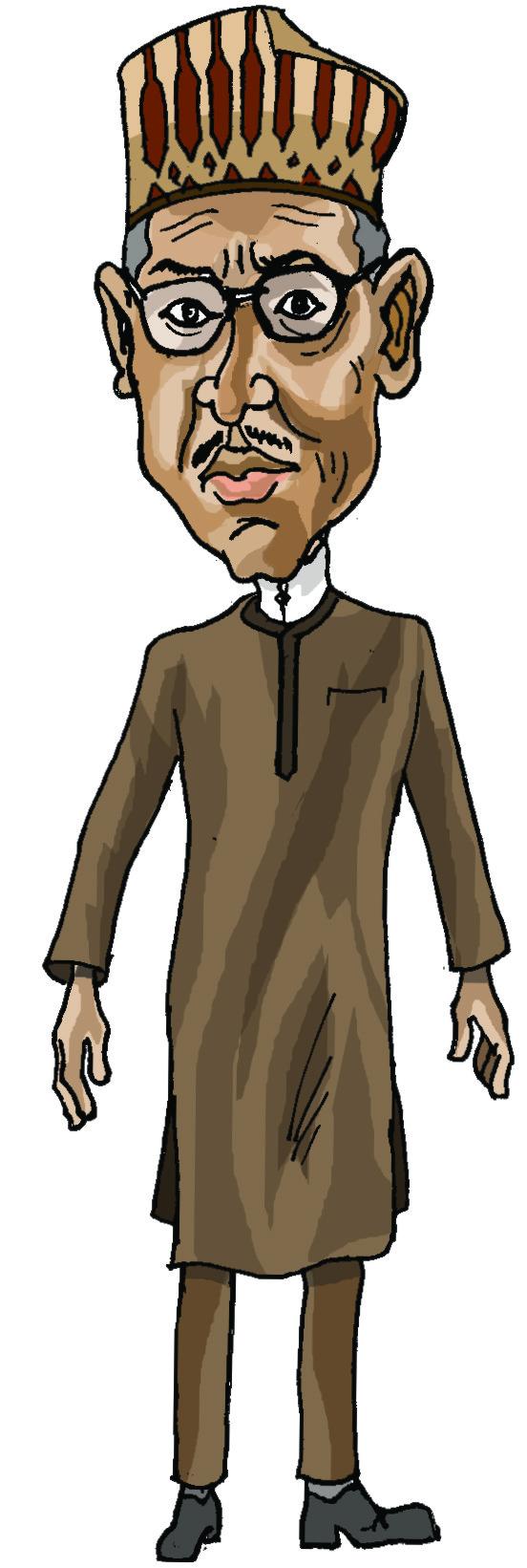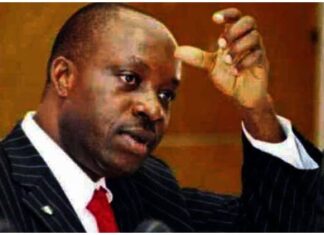By Emeka Alex Duru
On February 6, 2015, Muhammadu Buhari, then, the presidential candidate of the newly formed All Progressives Congress (APC), took a trip to Maiduguri, Borno State, in course of his campaigns. Many likened the move to hunting in a lion’s den – a risky gamble of sort. And they had their reasons.
Maiduguri and other towns in Borno and by extension, the entire North East, were then, as now, in a near state of war, on account of Boko Haram insurgency. Many security agents that had been dispatched to quell the insurgency, had clearly been overwhelmed by the terrorists. Thus, when the retired general embarked on the trip, it was seen in some quarters as a suicide mission. “Was this not Maiduguri that even the residents were leaving in droves?” concerned Nigerians and party members had asked.
But the general was not deterred. In fact, to the surprise of many, the turn-out by his supporters, was tumultuous. And the security agents stationed at the Maiduguri Stadium, were clearly stretched.
In capturing the situation, a national daily, Leadership Newspaper, had reported, “At a point, the apparently exasperated soldiers and policemen were forced to shoot into the air and release some canisters of tear gas in a failed attempt to keep the crowd at bay.”
But that did not work. In fact, as Buhari’s motorcade snaked into the ecstatic crowd, it became more difficult to maintain order. “The crowd went wild when Buhari had to walk through the elevated isle of the mega podium. Fans went out of control as they broke through the iron barricade that fenced them out and rushed towards the stand. The friendly show of support and love for the APC presidential candidate suddenly became a threat as all pleas for them to calm down fell on deaf ears. Sensing that it would amount to a waste of time if he should insist on speaking, Buhari took the advice of his aides and quickly allowed them to whisk him out of the venue”, the paper added.
That was the Buhari phenomenon – a mystique that explained his fourth attempt at presidential election, after three earlier unsuccessful outings.
Beyond the Buhari Phenomenon
In his first outing as Military Head of State, through a coup d’état in 1984, the former army officer left a mark on Nigerians that he reaped from in 2015. Coming at a time that the nation had bled profusely on account of corruption, dwindling ethical values and badly managed economy, that had characterised the Peoples Democratic Party (PDP) which had been in power uninterruptedly for 16 years, it was not surprising that Buhari easily ran over the then President Goodluck Jonathan in that year’s election.
The President asks for another term
Nearly four years after that rare feat of unseating an incumbent, Buhari is seeking another term, in what he says, is to continue the good work of his administration. At the launch of the APC campaign punch line – Next Level on Sunday, November 18, 2018, Buhari, painted an enticing picture of Nigeria in the next four years, if given another chance through the ballot.
“We have worked hard to fulfil our promises – and while the road may have been difficult, over the last three and a half years, we have laid the foundations for a strong, stable and prosperous country for the majority of our people” Buhari had claimed in his presentation.
He listed all that his administration has actualised so far and the ones it hopes to do if given another mandate. In what then seemed a challenge to Nigerians to make a choice of tagging with the party for better days ahead or losing out completely, he said, “The next four years will be quite significant for our country. Nigeria is faced with a choice to keep building a new Nigeria- making a break from its tainted past which favoured an opportunistic few. Our choices will shape us – our economic security and our future prosperity”.
These were ordinarily, remarks that would have instantly sold the president to the electorate. In his days as a military leader when he reminded Nigerians that they had no other country and therefore needed to stay around to salvage it, the admonition was interpreted as a call to duty by all. And it resonated in all parts of the country. Even in 2015 when he told the voters that he was running to rid the country of corruption, insecurity and unemployment among other promises, the ordinary Nigerians, especially in the North and South West, readily rallied around him.
How far can Buhari go?
Years later, the jury is still out on how faithfully he has kept to these pledges. Though the administration had recorded initial gains in tackling insecurity, particularly in reclaiming some parts of the North East previously annexed by the Boko Haram insurgents, that victory is increasingly appearing short-lived, given the resurgence of actions by the terrorist organisation. Late last year for instance, an attack by the group in Metele, Borno state, left scores of soldiers dead and many injured. Aside the Boko Haram menace, there have been various incidences of criminality in many parts of the country. The murderous engagements of the Cattle Fulani in the North Central and some parts of the South, are also putting the nation on the edge. Buhari has not incidentally offered a convincing blue print on how to tackle these apparent challenges if elected.
The economy has also not fared better. It has, in fact, according to experts, slipped further, with unemployment figure assuming more frightening dimensions. Recent data, had put the country’s unemployment rate as increasing steadily since Q2 of 2016 when it stood at 13.30 percent to 18.80 in Q3 of 2017, when Nigeria’s National Bureau of Statistics released the last job figures.
The fight against corruption has undoubtedly, recorded some gains. But the selective nature of the exercise, seen mostly as being targeted at the opposition and perceived opponents of the President and his party, casts huge cloud of doubts on the actual direction of the fight.
Buhari’s administration has also exhibited overt disregard to key pillars of democracy in areas of walking roughshod on the legislature and disobedience to Court Orders. But perhaps, where even his ardent admirers get crossed with him is his provincial proclivity especially in tailoring key appointments to his Northern kinsmen. What particularly irks in the exercise, is his haughty disposition in going about it. Critics accuse him of exhibiting manifest entitlement tendency in most of his actions.
Buhari, not the problem
The President’s supporters however insist that on account of the staggering decay he met on ground on assumption of office, there is little he can do in just a term. They add that some of the actions of the President needed to be so, for now, to lift the country from the abyss that the previous government had thrown it into.
Buhari, the soldier, the politician
Buhari, a retired general and former head of state, was born in 1942. He had before emerging president in 2015, run for the office, twice on the platform of the then All Nigeria Peoples Party (ANPP), in 2003 and 2007; Congress for Progressive Change (CPC), 2011. On those instances, he did not record much impact. It was his in fourth attempt on the ticket of the APC in 2015, that he broke the jinx of unsuccessful attempts.











